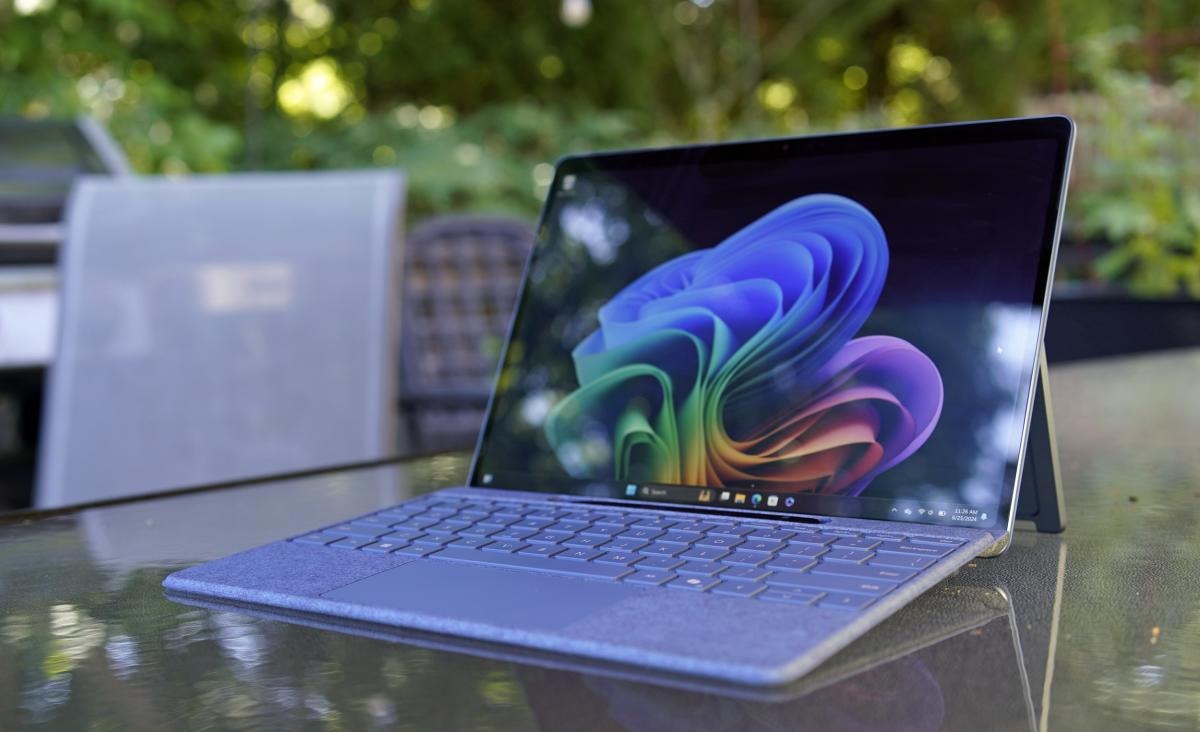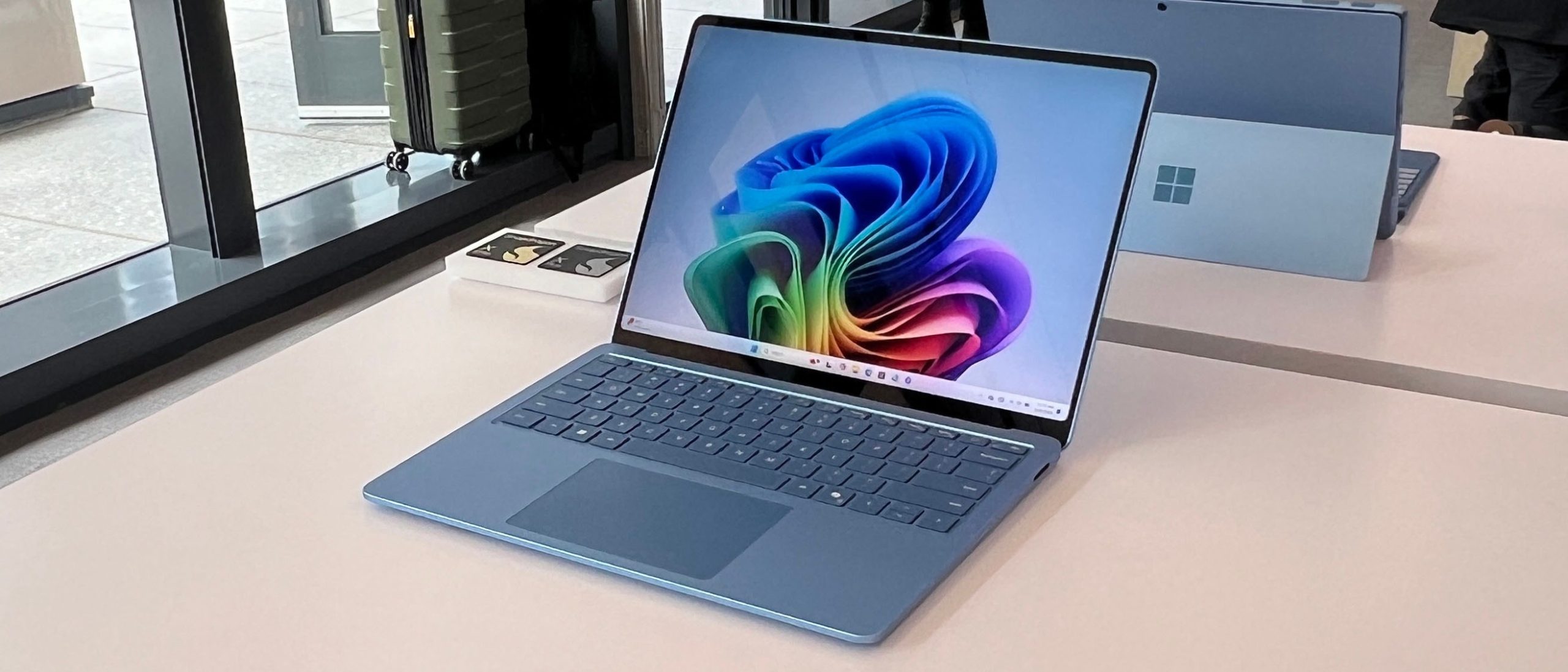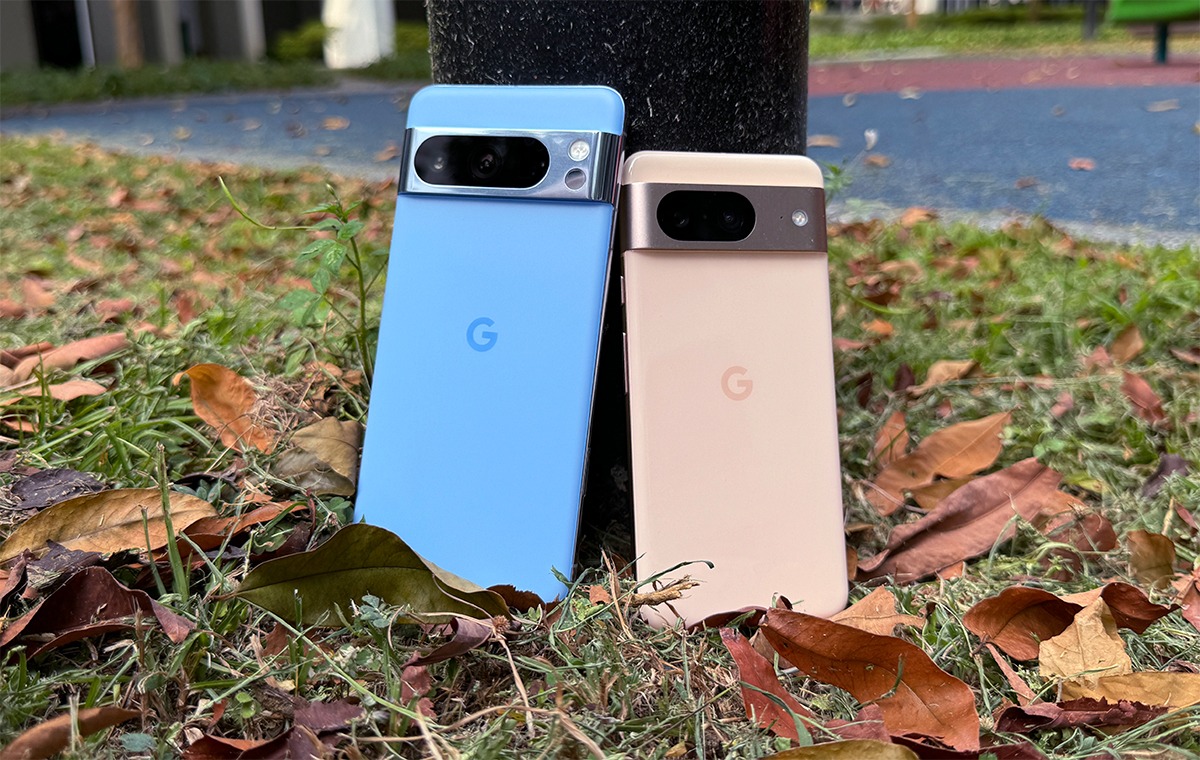It’s taken 12 years, but Microsoft has finally created an Arm-powered Surface tablet that I don’t want to throw out the window. The new Surface Pro, one of the company’s first Copilot + AI PCs, is incredibly fast and energy efficient thanks to Qualcomm’s new Snapdragon x Elite chip. It can run native ARM applications well-but even better, it can also emulate older applications without much hassle. Basically, Microsoft has finally managed to do what Apple did with its M-series chips four years ago: provide killer laptops with low-power mobile chips.
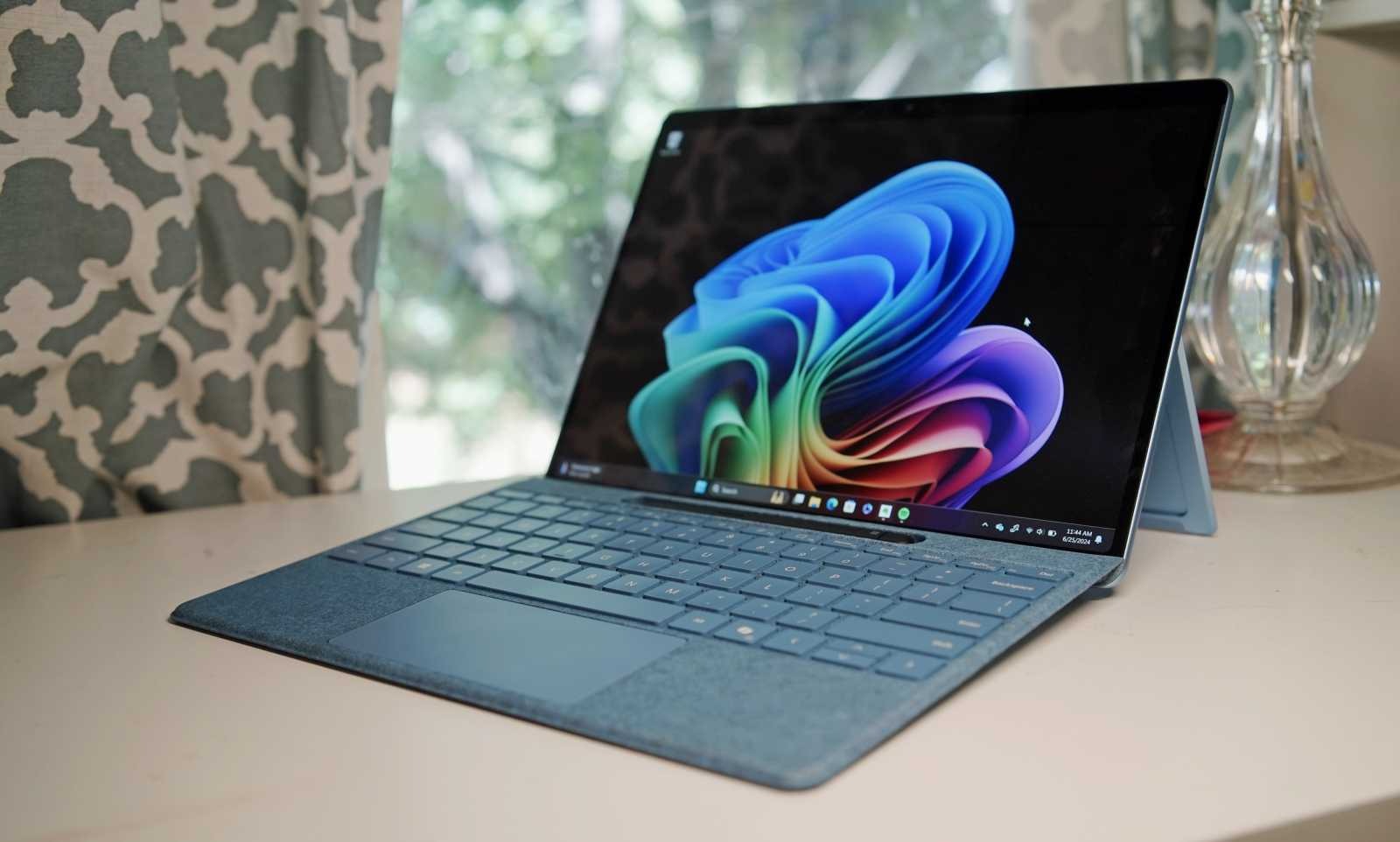
Ironically, however, the highly publicized AI capabilities of the Surface Pro are much less convincing than the double whammy of speed and solid battery life. At launch, Surface Pro and other Copilot+ PCs can use the Cocreator in Paint to generate AI images alongside text prompts and doodles. You can also translate more than 40 languages into English using the Windows 11 live captioning feature. However, the arguable reminder feature is nowhere to be found (Windows Insiders will be able to test it in the coming weeks, according to Microsoft, but there is no official release date yet.)
Surface Pro (2024)
The Surface Pro is the fastest and most efficient Microsoft tablet we’ve seen to date, especially when paired with its Flex keyboard. The new OLED display is wonderful to look at and its NPU allows powerful AI capabilities.
What is Copilot+ encore?
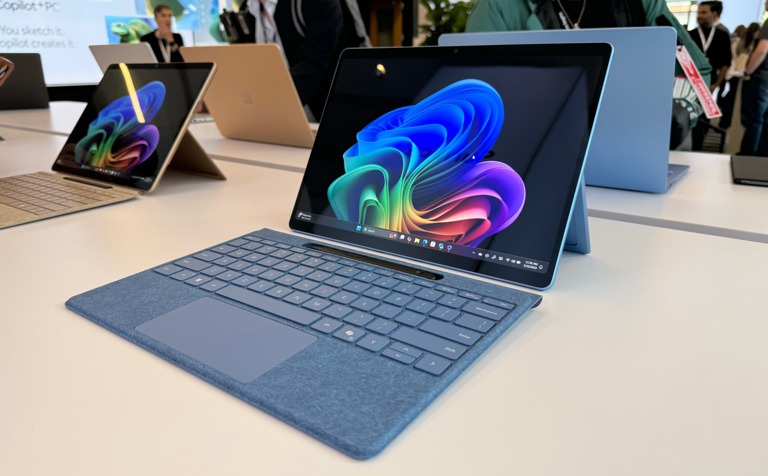
Announced last month before the Build Developer Conference, Copilot+ is Microsoft’s recent initiative aimed at attracting consumers and device manufacturers to AI PCs. Just like Intel Evo PCs, Copilot+ systems must meet a number of minimum specifications: they must include a neural processing unit (NPU) with at least 40 TOPs (Trillion operations per second) of AI performance, 16 GB of RAM and a 256 GB SSD. While Intel and AMD have tried to exaggerate the idea of an “AI PC” over the past year, there wasn’t much to do with them outside of using Windows Studio effects in video Chats.
To power the first Copilot+ systems, Microsoft is partnering with Qualcomm to optimize Windows 11 for the chip manufacturer’s new Snapdragon x Elite and plus models. These processors are based on Arm mobile technology instead of the x86 and x64 chips manufactured by Intel and AMD. Arm designs have generally resulted in poor performance and software incompatibility on Windows (see our Surface Pro 9 5G and Surface Pro X reviews for a refresher), but Microsoft says it has finally tweaked its operating system to work better with the mobile architecture, and its new Prism emulator can also run older software
What is the problem with Recall?

Recall is a clear example of Microsoft’s reach exceeding its scope. It should help you find everything you are doing on your computer through a natural conversation with the Copilot AI Assistant. However, to do this, Recall constantly takes screenshots of your system, which are then saved on your hard drive. It didn’t take long for the researchers to find obvious vulnerabilities: getting their recall data was not difficult for other accounts, and it was also easy prey for remote hackers. Microsoft responded to the review by stating that it would make the RECALL An Opt-in feature accessible only with Windows Hello biometric authentication, which encrypts your database by default.
The lesson for Microsoft (and any other AI-hungry company) is that you need to build trust, ideally by prioritizing privacy and security before imposing authoritarian AI features on your customers. The backlash against the recall comes from the company, which, fortunately, is unaware of how little people trusted it.
